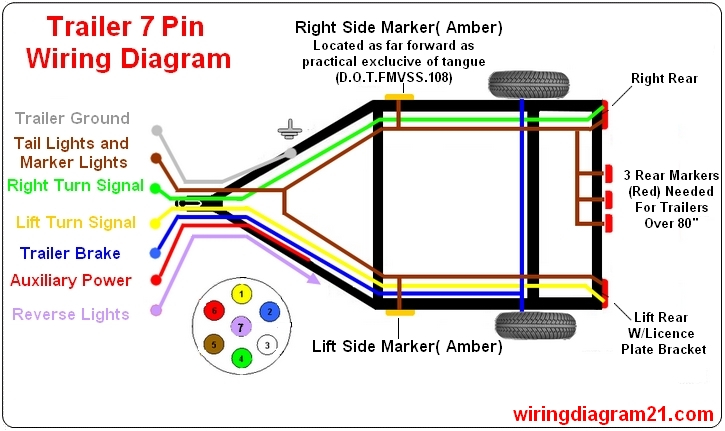Towing a trailer can feel like navigating a ship in a storm without the proper braking system. Imagine descending a steep incline, your vehicle struggling to maintain control of the added weight, or suddenly needing to stop in traffic. These scenarios underscore the crucial role of a reliable trailer braking system, and for many, surge brakes offer a compelling solution. This comprehensive guide delves into the world of surge brakes, exploring why they're vital for safe towing, how they function, and the key considerations for installing and maintaining them.
Before the advent of surge brakes, trailer braking systems were rudimentary at best. Early trailers often relied solely on the tow vehicle's brakes, placing immense strain on the vehicle and increasing stopping distances significantly. The introduction of surge brakes marked a revolutionary advancement in trailer safety. These self-contained hydraulic braking systems utilize the momentum of the trailer pushing against the tow vehicle during deceleration to activate the brakes. This ingenious design provides proportional braking force, meaning the harder the deceleration, the stronger the braking action on the trailer.
Integrating surge brakes enhances towing safety by distributing the braking effort, reducing the burden on the tow vehicle's brakes, and improving overall control. This is particularly crucial when hauling heavy loads or navigating challenging terrains. Without surge brakes, the tow vehicle bears the full brunt of stopping the combined weight, leading to increased wear and tear on the brakes, longer stopping distances, and a heightened risk of accidents. In essence, surge brakes are a vital safety component that contributes significantly to a more secure and controlled towing experience.
Understanding how surge brakes operate is essential for effective installation and maintenance. The core mechanism involves a hydraulic actuator housed within the trailer's tongue. When the tow vehicle decelerates, the trailer's momentum compresses the actuator, forcing hydraulic fluid to flow into the brake lines and engage the brakes on the trailer wheels. This process happens automatically, providing a seamless and responsive braking action proportional to the deceleration force. Installing a surge brake system involves mounting the actuator, connecting the hydraulic lines, and ensuring proper bleeding of the system to remove any air.
While surge brakes are generally reliable, several issues can arise, primarily related to improper installation or maintenance. Common problems include leaks in the hydraulic lines, malfunctioning master cylinder, and worn-out brake shoes. Regular inspections and timely maintenance are crucial to prevent these issues and ensure optimal performance. Understanding the symptoms of these problems, such as spongy brakes or reduced braking effectiveness, is also essential for prompt diagnosis and repair.
One benefit of adding surge brakes is improved safety, by reducing the burden on the tow vehicle’s braking system. Another benefit is increased control, especially in challenging driving conditions. Lastly, surge brakes are relatively easy to install and maintain.
Advantages and Disadvantages of Surge Brakes
| Advantages | Disadvantages |
|---|---|
| Improved Braking Performance | Can be less effective in reverse |
| Reduced Wear and Tear on Tow Vehicle Brakes | Requires regular maintenance |
| Relatively Easy Installation | Can be expensive initially |
Best practices for implementing surge brakes include: regular maintenance checks, proper installation by a qualified technician, correct sizing of the surge brake actuator for the trailer weight, routine inspection of hydraulic lines and connections, and understanding the limitations of surge brakes in specific situations like reversing on inclines.
Frequently Asked Questions about Surge Brakes:
1. What are surge brakes? (Answer: A type of trailer braking system…)
2. How do surge brakes work? (Answer: … utilizes the momentum of the trailer…)
3. Why are surge brakes important? (Answer: …enhance towing safety and control…)
4. How do I install surge brakes? (Answer: …involves mounting the actuator…)
5. What are common problems with surge brakes? (Answer: …leaks in the hydraulic lines…)
6. How do I maintain surge brakes? (Answer: …regular inspections and timely maintenance…)
7. Are surge brakes suitable for all trailers? (Answer: …depending on the weight and type…)
8. Where can I learn more about surge brakes? (Answer: …consult reputable trailer manufacturers…)Tips and Tricks: Always ensure your hydraulic fluid is topped off. Check your brakes before each trip. Understand the limitations of your surge brakes in specific situations like reversing uphill.
In conclusion, upgrading your trailer with surge brakes represents a significant investment in safety and control. From the early days of rudimentary trailer braking to the sophisticated hydraulic systems we have today, the evolution of surge brakes has transformed the towing experience. By understanding how these systems function, implementing best practices for installation and maintenance, and recognizing potential issues, you can ensure a safer and more controlled towing journey. The enhanced braking performance, reduced strain on your tow vehicle, and overall improved control afforded by surge brakes translate into a more confident and secure towing experience. Don’t compromise on safety; explore the world of surge brakes and elevate your towing experience to the next level.
7 Way Trailer Wiring Diagram With Brakes - Trees By Bike
How To Adjust Trailer Surge Brakes - Trees By Bike
7 Way Plug Wiring Diagram For Electric Brakes - Trees By Bike
Travel Trailer Hydraulic Brakes at Tracey Johnson blog - Trees By Bike
How to Bleed Trailer Surge Brakes - Trees By Bike
How To Install Surge Brakes On A Boat Trailer at Arnold Dipasquale blog - Trees By Bike
7 Pin Trailer Wiring Diagram With Surge Brakes - Trees By Bike
Trailer Surge Brake Parts - Trees By Bike
Electric Brakes Are Commonly Used In Which Vehicles - Trees By Bike
Wiring Diagram For A Trailer With Electric Brakes - Trees By Bike
Boat Trailer Brake Repair - Trees By Bike
Amazoncom C CLINK Surge Brake Lockout Key WMagnetic Lock Out Key - Trees By Bike
Travel Trailer Hydraulic Brakes at Tracey Johnson blog - Trees By Bike
Trailer Surge Brake Market is expected to be valued at US 80 Bn in - Trees By Bike













